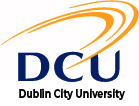BEng (with Honors) in Biomedical Engineering
Key Points
This title has been designed in consultation with the healthcare industry and the medical community, ensuring that you will receive an up-to-date education with current developments. Traditionally, medical device companies have hired staff from fields such as mechanical and electronic engineering, and then provided additional training in bioengineering, but DCU’s biomedical engineering integrates the necessary aspects of biology and medicine with technical engineering aspects. needed to design medical devices.
The variety and sophistication of medical devices needed to deliver treatment and fight disease is growing in response to rapidly evolving disease treatments. From cameras that scan blood vessels to scanners that scan the entire human body, biomedical engineering expertise is in greater demand than ever.
Program description
In the first year of this course, you will cover the fundamentals of mathematics, physics, engineering, and computer science. A major group project involves the design and construction of a radio-controlled device.
Design-related modules continue from the first year and are further developed in the second year, as they are of fundamental importance in linking the disciplines of engineering and healthcare . In your second year, you will cover a combination of mechanical engineering, biology, and bioengineering topics.
In year three you will learn to develop products in accordance with the relevant regulatory requirements of the medical device industry and join other DCU mechanical engineering students in a design competition. This is followed by the six-month INTRA placement, usually with a medical device company. This period of industrial training will provide you with an idea of the structure and operation of sanitation companies and will be invaluable in your future career.
In your fourth year, you will learn about advanced technologies in the fields of rehabilitation engineering, biomaterials, computer vision, and surgical device technology, and how to apply sophisticated modeling software. computer in the design process. The fourth year project will allow you to work on a substantial design or research project in an area related to biomedical engineering.
If you choose to continue to the fifth year, you will expand your design skills and learn to conduct advanced research and apply it to a major research project in a field of biomedical technology.
Career options
Graduates can find employment in the following career areas:
- Health industry
- Medical device companies
Given the strong condition of the Irish industrial sector and considering DCU’s active synchronization with the medical sector, Biomedical Engineering students can feel confident about their career prospects. The increasing harmonization of European standards and US regulations also ensures that graduates are employable around the world.
Alumni occupy positions such as:
- Clinical Engineer
- Product Development Engineer
- Project Engineer
- Quality Engineer
- Research and development
Program structure
Admission requirements
- As a general requirement, a Bachelor’s Degree / Baccalaureate Diploma / General Baccalaureate / Professional Degree from a recognized university with, minimum, is required a subject in mathematics.
- For international candidates, the foreign equivalent is required. In addition, an officially translated degree will be required.
- IELTS 6.5, with no less than 6.0 in any component (or its internationally recognized equivalent).
Learn more about our educational offer
Request your quote
An advisor will contact you by phone and email within the following hours

